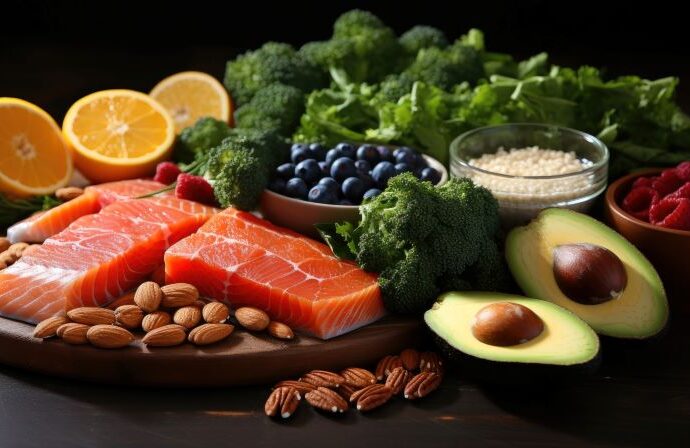Healthy eating is a crucial component of maintaining optimal health and well-being for Baby Boomers. By prioritizing nutrient-dense foods, staying hydrated, and being mindful of portion sizes, older adults can support their physical and mental health in their golden years!
As the Baby Boomer generation continues to age gracefully, maintaining good health and well-being becomes increasingly essential. A fundamental aspect of leading a healthy lifestyle during these golden years is adopting a balanced and age-appropriate diet. Proper nutrition not only enhances overall health but also reduces the risk of chronic diseases and improves the quality of life for Baby Boomers. In this guide, we will explore the nutritional needs specific to this demographic and provide practical tips for healthy eating.
- Prioritize Nutrient-Rich Foods
As we age, our bodies undergo various changes, including a decrease in metabolism and changes in digestion. It’s crucial for Baby Boomers to prioritize nutrient-dense foods that supply essential vitamins and minerals without excessive calories. Opt for fresh fruits, vegetables, whole grains, lean proteins, and healthy fats. Foods rich in calcium, vitamin D, B12, and omega-3 fatty acids are especially important for bone health, cognitive function, and cardiovascular health.
- Hydration is Key
Staying hydrated is vital for everyone, but it becomes even more critical as we age. Dehydration can lead to a range of health issues, such as fatigue, dizziness, and cognitive impairment. To maintain proper hydration, aim to drink at least 8 cups of water or other non-caffeinated beverages daily. If you have trouble remembering to drink water, consider setting reminders or carrying a water bottle with you.
- Focus on Fiber
Dietary fiber plays a crucial role in supporting digestive health and preventing constipation, a common issue among older adults. Including fiber-rich foods like whole grains, fruits, vegetables, and legumes can promote regular bowel movements and keep your digestive system functioning smoothly.
- Reduce Sodium Intake
As Baby Boomers age, their bodies may become more sensitive to sodium. High sodium intake can contribute to hypertension, increasing the risk of heart disease and stroke. Be mindful of processed foods and salty snacks, and try to limit added salt in your cooking. Instead, use herbs and spices to add flavor to your meals.
- Mind the Protein Intake
Protein is essential for maintaining muscle mass, which tends to decline with age. Incorporate protein sources such as lean meats, poultry, fish, beans, tofu, and dairy products into your diet. Adequate protein intake also supports immune function, tissue repair, and hormone production.
- Consider Supplements
While it’s best to get nutrients from whole foods, certain supplements may be beneficial for Baby Boomers, especially if there are specific dietary restrictions or health conditions. Consult with a healthcare professional before adding any supplements to your diet to ensure they’re safe and appropriate for your individual needs.
- Be Cautious with Added Sugars
Excessive sugar consumption can contribute to weight gain and increase the risk of type 2 diabetes and cardiovascular diseases. Limit your intake of sugary beverages, desserts, and processed foods. Instead, satisfy your sweet tooth with fresh fruits or small portions of naturally sweet treats.
- Practice Portion Control
Metabolism naturally slows down with age, making it essential to be mindful of portion sizes. Consuming smaller, more frequent meals can help maintain energy levels throughout the day and prevent overeating. Additionally, listening to your body’s hunger and fullness cues will assist in avoiding unnecessary calorie intake.
Remember to consult with a healthcare professional or registered dietitian to tailor your diet to meet your individual needs and address any specific health concerns. Embracing a balanced and age-appropriate diet will undoubtedly enhance the quality of life and allow Baby Boomers to savor their well-deserved retirement years to the fullest.

























